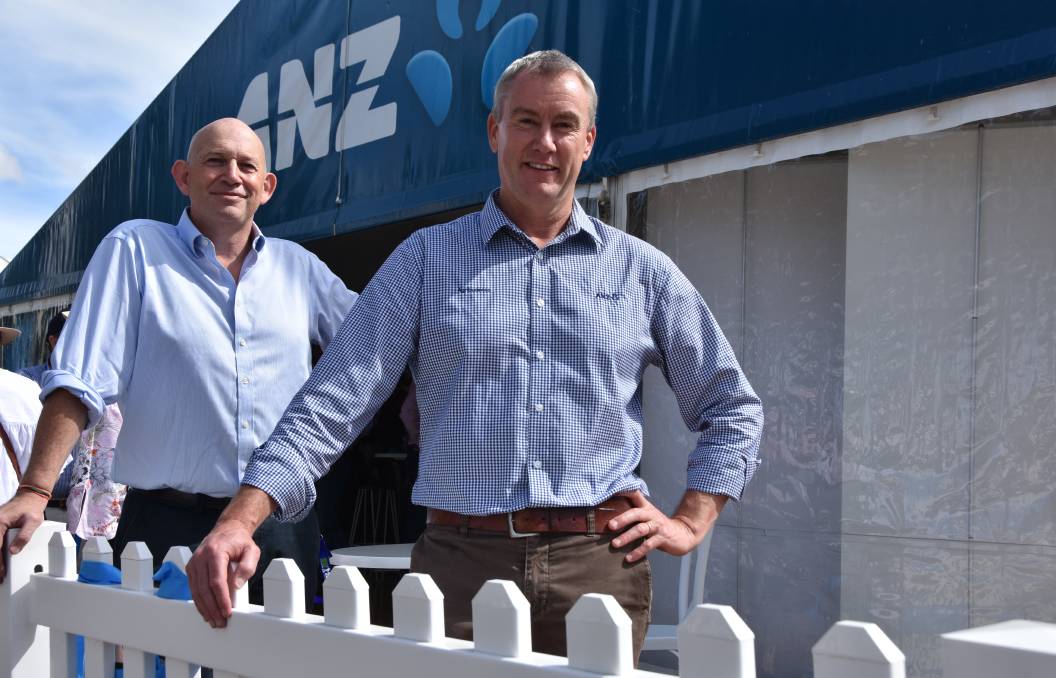
Boom times ahead for beef so build up to make the most of it
There are plenty of reasons to believe the good times for Australia’s cattle game will continue for some years yet but more importantly is the opportunity that exists right now to build on the good fortune.
For many producers, the aim now is not just rebuilding herds to pre-drought levels but making them even stronger to capitalise on boom times ahead for beef.
This was the message from ANZ’s agribusiness insights team at a Beef Australia discussion yesterday looking at the strong position the cattle industry is currently in.
ANZ head of agribusiness Mark Bennett said solid underpinning demand, better weather conditions, record low cost of finance and high cattle prices had placed producers in a very strong position.
“Those who’ve had cattle for a while probably wouldn’t have seen things better in their lifetime,” he said.
“And there are a lot of reasons to think these times might last for a while – the underpinning demand is going to support good times for beef for quite a while.”
The situation had flowed into real estate values. Things had never been ‘higher and hotter’ in most regional districts, Mr Bennett said.
“We think a producer can lock things in for the next three years and be very comfortable about where things are going,” he said.
However, he also spoke about cycles and the need to think long-term.
“Most spends on land are a much longer, generational investments, so knowing your own business fundamentals and where you have room to move is still critical,” he said.
“Prices will eventually come down and the weather will leave us and interest rates will go up at some time. When that happens, we don’t want people in untenable positions.”
While this shouldn’t dampen confident strategies, it had to be factored in, he said.
Betting the farm
The reinvigorated family cattle farm sector and its role in Australia’s booming cattle industry was also put under the spotlight in the ANZ tent.
The bank’s director of agribusiness insights Michael Whitehead said ten years ago, there was plenty of pessimism about the family farm – the future was thought to be the big capital coming in to ag.
“There were fears that family farms could find it difficult to compete on scale, efficiency, or consolidation opportunities. Fast forward to today and increasingly many family farms have not only risen to the challenge but pursued a range of innovations to grow in strength,” Mr Whitehead said.
The average family operation has evolved not just in scale but generationally, he said.
With the ongoing process of farm consolidation growing the scale of many operations, the ability increasingly exists for two generations to work together on a farm positively and constructively.
Mr Whitehead said more and more the younger generation was returning home from a tertiary education not just with the training in agriculture but new skills and knowledge, a passion for ag tech and financial skills. That translated into more innovative and efficient beef production, he said.
Capital flow
Capital was still flowing in, and while the position of the family farm on the agri investment landscape was now far stronger, it was not an easy game, Mr Whitehead said.
The ANZ team provided some excellent insight into what investors were looking for.
Good farm managers – good agri management DNA was top of the list, they said.
“Absolutely they want good assets but expertise is highly sought today,” Mr Whitehead said.
“Data, data and data – they need to please giant fund managers in New York and data does it.”
Mr Whitehead also flagged a changing landscape for agriculture should talk of Australia’s super funds consolidating to form far larger entities come to fruition.
“Canadians, for example, invest in Australia ag in a big way because they have giant funds,” he explained.
“For them, walking around with a $3 billion cheque book to invest in Aussie ag is nothing.
“By contrast, the risk is too much for Australia super funds but if this consolidation prediction comes about, then expect the flow to come into agri in a bigger way because the risks will be less.”
One more thing: If you are going to be part of that investment flow you’ll need to arrive armed with some kind of sustainability program, the agri experts said.
Sustainability credentials is going to be an ‘insist’ from here on.